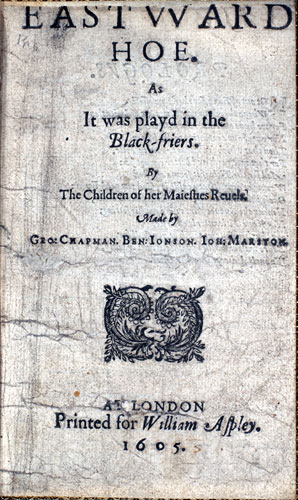December 6, 1599

Psalm 113 – 🔈
Richard Allison, The Psalmes of Dauid in meter, London : Printed by [i.e. for] William Barley, the assigne of Thomas Morley, 1599.
“After priuate praier I did eate my breakfast; then I reed of the bible: then I wrought, praied, and after went to dinner: after dinner I was belowe with my maieds busy, and then stveded my Lector; after, I took a newe Lector and then praied priuvately, and examend myself: then I went to supper: after, to publeck praiers, then I talked and song a psalme with diuerse that were with me, and, lastely, praied priuately , and so went to bed.”
Diary of Lady Margaret Hoby, Thursday, December 6th, 1599
1605

Psalm 126 – 🔈
Sung to the common tune Cambridge.
“Wolf. Humility, sir? Ay. Were your Worship an eyewitness of it, you would say so. The knight will i’ the Knights’ Ward, do what we can, sir; and Master Quicksilver would be i’ the Hole, if we would let him. I never knew or saw prisoners more penitent or more devout. They will sit you up all night singing of psalms, and edifying the whole prison; only Security sings a note too high sometimes, because he lies i’ the Twopenny Ward, far off, and cannot take his tune. The neighbors can not rest for him, but come every morning to ask what godly prisoners we have.”
Eastward Ho!, 1605
July 16, 1619

Psalm ___ – ___ 🔈
“Contra Robertum Simlay for prophaninge the Scriptuers and the psalmes of David callinge in deriding manner in Alehouses and other places for the 23 psalme to the tune of lengtr ⸢d langtie donne dilie⸣ Quo die °Comparuit personaliter dictus Robertus Simlay et negat obiectionem esse veram, et fidem fecit tactis &c de innocentia sua in hac parte vnde dominus eum dimisit cum monicione &c.°”
Borthwick Institute; Shelfmark: V.1619/CB, vol. 2, July 6, 1619
1636

Psalm ___ – ___ 🔈
“According to that grave manner (which first was in use) that such doe sing as can reade the psalms, or have learned them by heart; and not after that uncouth and undecent custom of late take up, to have every line first read, and then sung by the people.”
Visitations and Articles of the Early Stuart Church, 1636